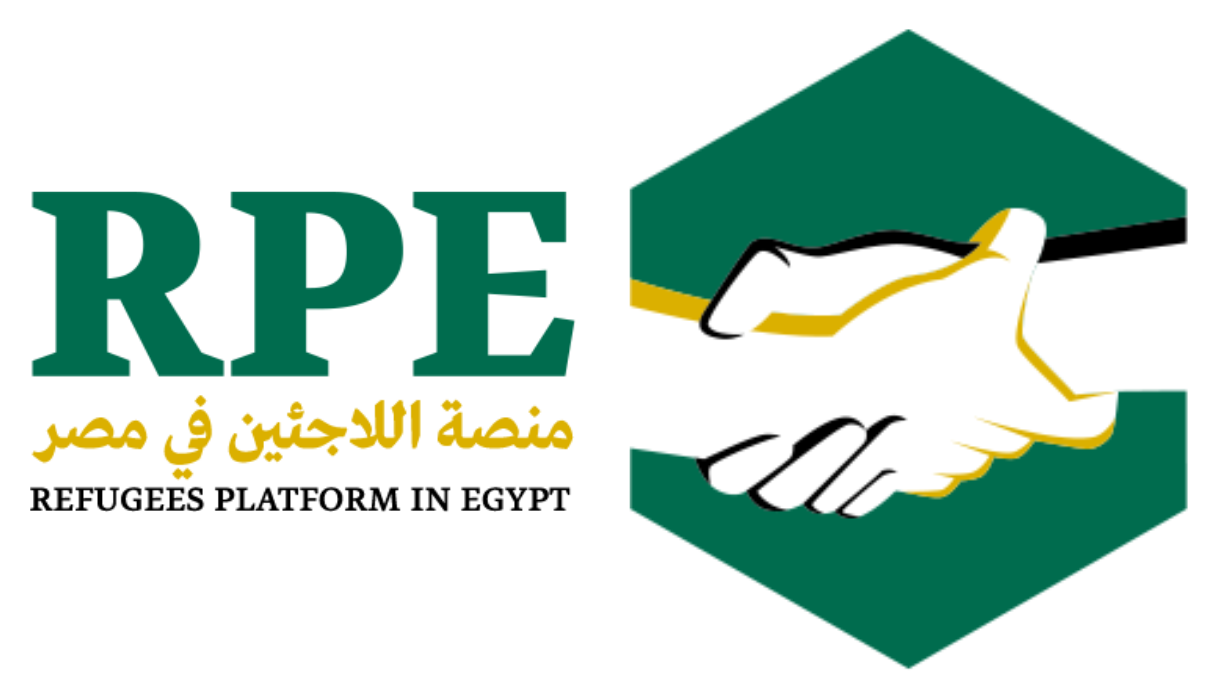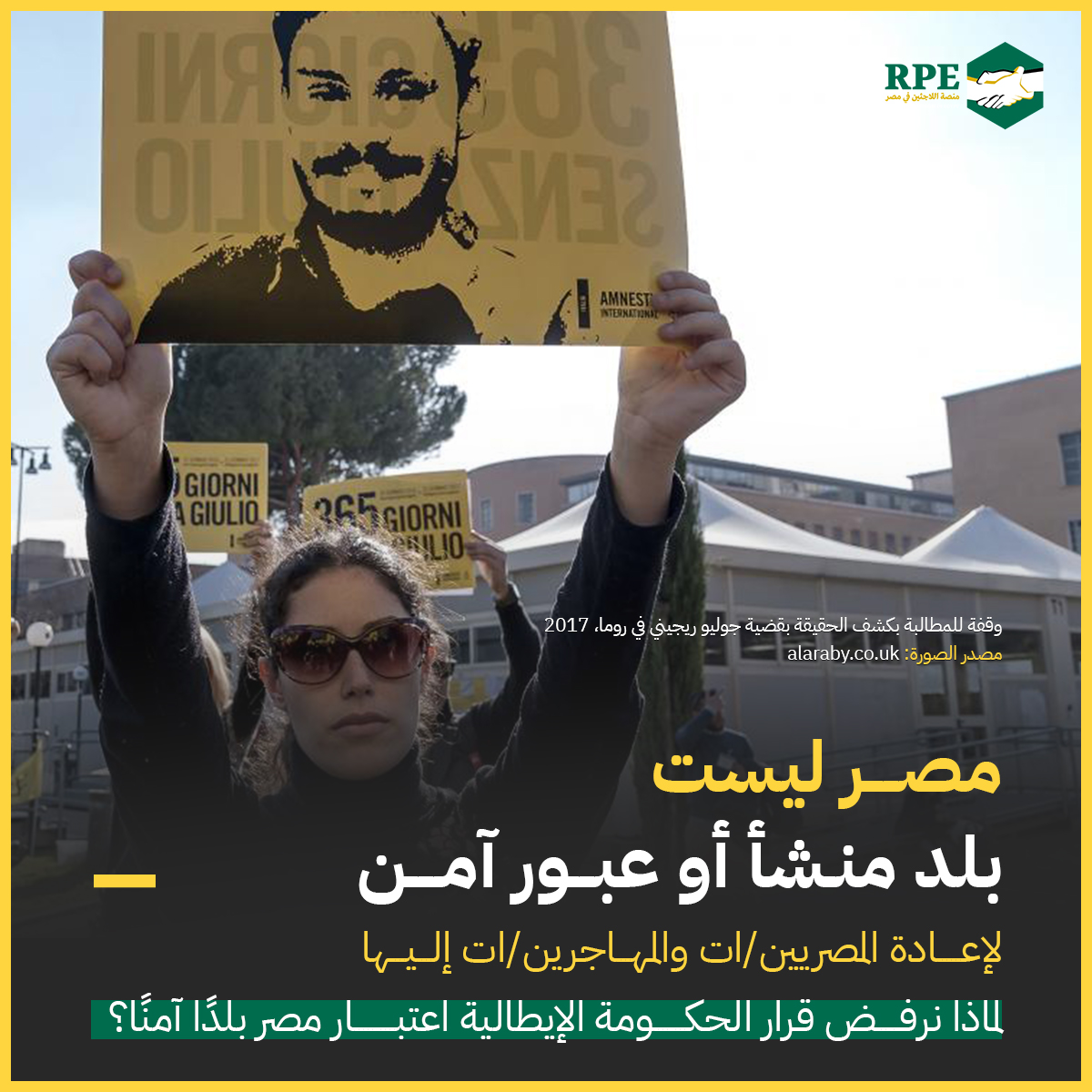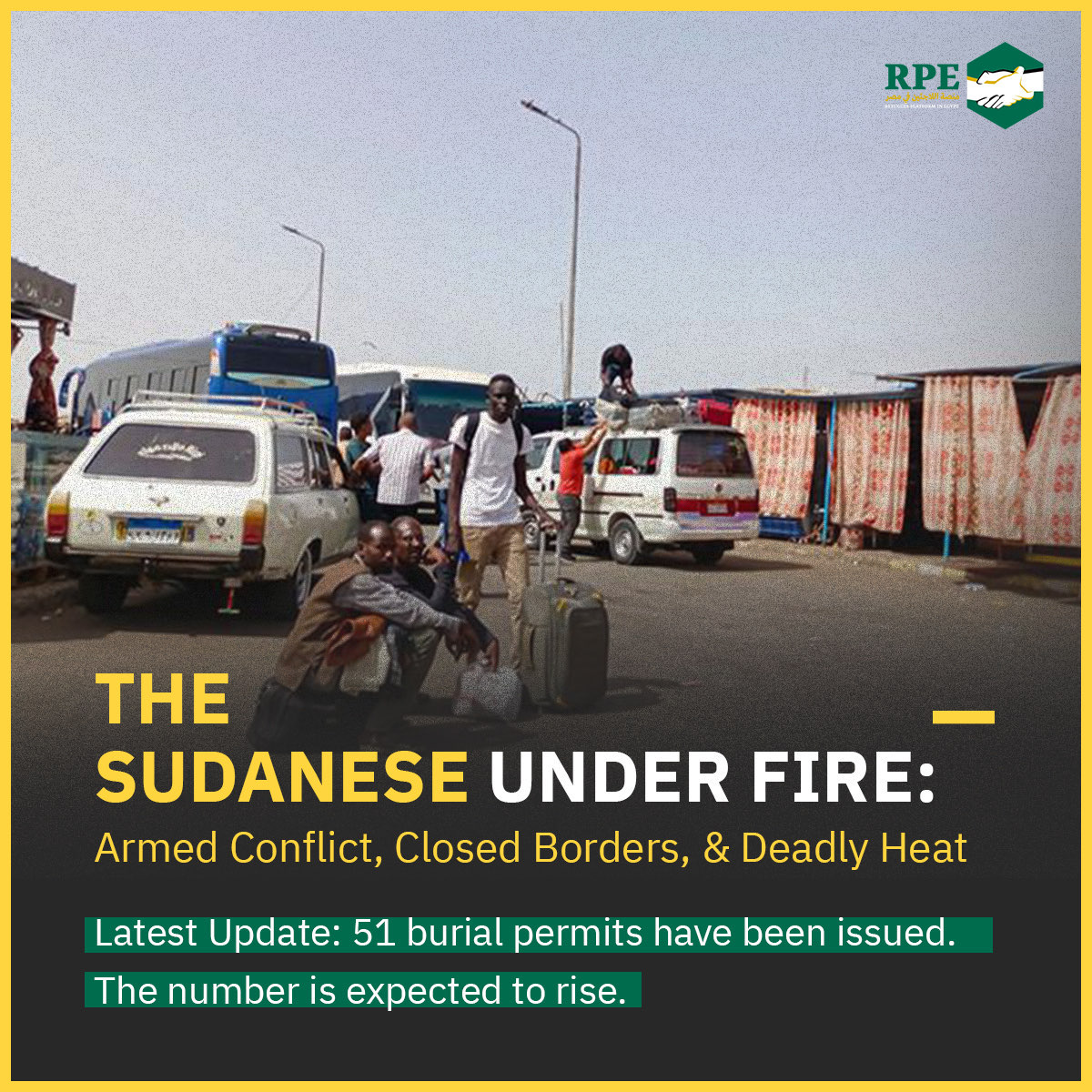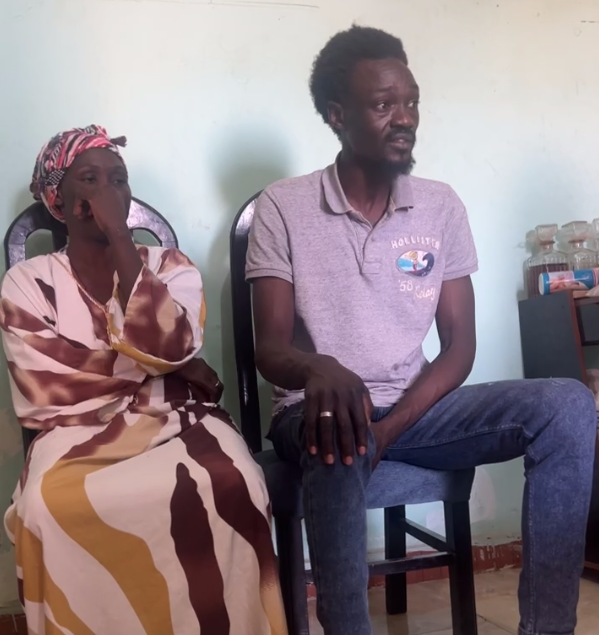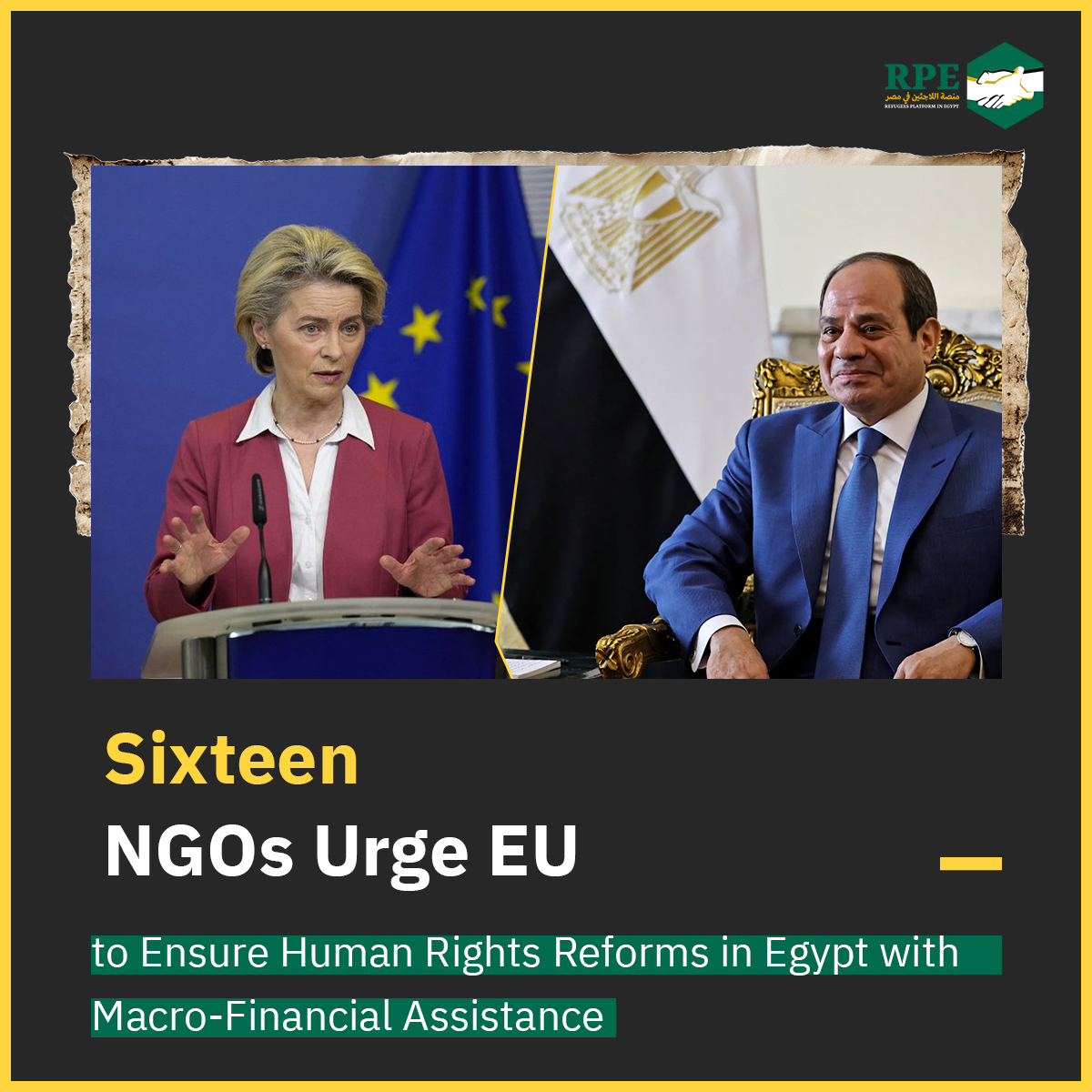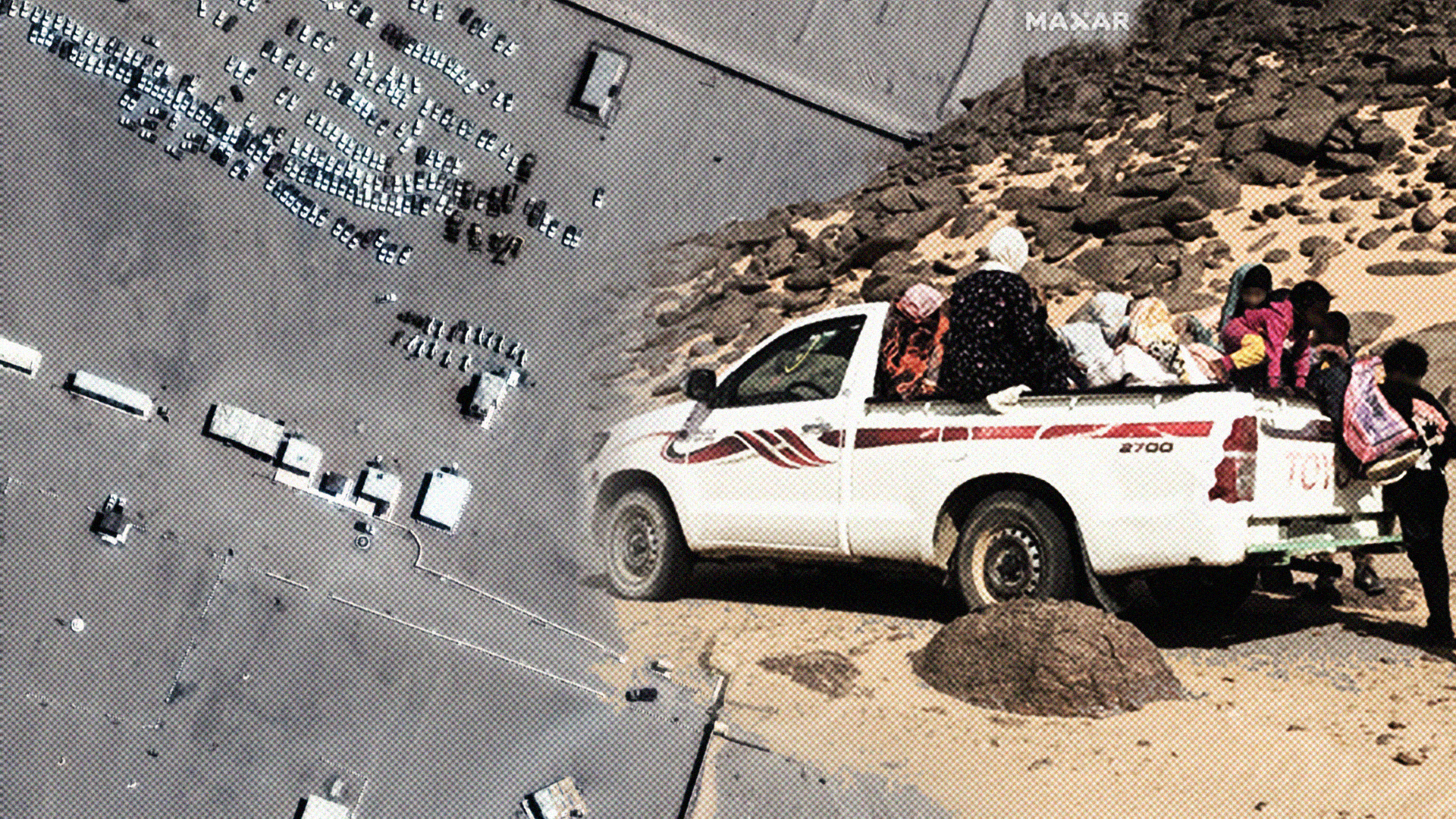On June 5th, the Refugees Platform in Egypt (RPE), along with 40 civil society organizations, expressed in a joint statement their deep concern over Italy’s decision to classify the Arab Republic of Egypt as a “safe country of origin” under Legislative Decree No. 25/2008, paragraph 2-bis.
The organizations urged the Italian government to publicly disclose the criteria followed in their country review of Egypt, and to reconsider the decision. This comes in line with the Italian government’s expanded efforts to strengthen relations between Egypt and the EU through a number of agreements, including the Mattei Plan, ATIPPA Training, and other agreements directly related to migration or development.
On 7th May, 2024, the Italian Ministry of Foreign Affairs, the Ministry of Interior, and the Justice Ministry issued a decree updating and expanding the list of safe countries of origin for applicants for international protection. The list has now increased from 16 to 22 countries to include Bangladesh, Cameroon, Colombia, Egypt, Peru and Sri Lanka, with very problematic consequences for asylum seekers from countries on the list, a tool that ultimately limits legal safeguards and access to asylum.
Under Legislative Decree No. 25/2008 (D.Lgsl. 25/2008), “a non-EU state may be considered a safe country of origin if, on the basis of its legal system, the application of the law within a democratic system, and the general political situation, it can be demonstrated that, on a general and consistent basis, there are no acts of persecution, as per art. 7 D.Lgsl. 251/2007, nor torture or other forms of inhuman or degrading punishment or treatment, nor danger due to indiscriminate violence in situations of internal or international armed conflict.”
Egypt’s legal and legislative system has experienced significant disruptions since the current president took over the reins of the country. The most indicative of the situation is the Egyptian parliament passing hundreds of laws within just two weeks at the beginning of 2016. These laws were issued by Presidential decrees after July 2013 in the absence of the parliament.
These laws include the Anti-Terrorism Law and the Protest Law, both of which have been used as tools for widespread repression of any political opposition in Egypt. This n was the new parliament’s first action after its predecessor was dissolved, indicating the depth of the crisis facing Egypt’s legislative system and its subordination to political power.
On the other hand, the overall situation in Egypt cannot be described as democratic or even semi-democratic. Press within Egypt—whether visual, print, audio, or online—is controlled by security or military institutions, however, in rare cases, it is controlled by pro-state businessmen.
Furthermore, Egyptian human rights organizations face severe repression, as seen in the case of the Egyptian Coordination for Rights and Freedoms organization, whose members were sentenced to ten years of aggravated imprisonment. Additionally, lawyer Hoda Abdel Moneim is being retried in a new case after completing her sentence in the Coordination case.
Beyond that, opposition party leaders like Abdel Moneim Aboul Fotouh and presidential rivals like Ahmed Tantawy have been detained. This crackdown has also been deadly, claiming the lives of 1,200 detainees since 2013 due to either torture or deliberate medical neglect, according to the Arab Organization for Human Rights in the UK.
Perhaps one of the most notable and heinous crimes against humanity was experienced by Italy in January of 2016: the murder of the young Italian Giulio Regeni. In March of the same year, Egyptian authorities announced the killing of five Egyptians, for murdering Regeni.
It was later revealed that all the accused were Egyptian police officers. In late May, Italian Assistant Prosecutor Sergio Colaiocco announced an audio recording that disproved the official Egyptian narrative and confirmed the involvement of the four accused Egyptian officers in the case.
Italy has a bitter and clear experience with the Egyptian authorities’ lies and falsifications of facts, in addition to their involvement in brutal torture leading to death of one of its citizens, without accountability or prosecution. The Egyptian authorities closed the investigations on their end and refused to provide the Italian authorities with any information about the accused. It is likely that the treatment of Egyptians in similar situations would be even harsher and more brutal.
As for refugees residing in or passing through Egypt, the RPE has provided numerous reports and documentation proving that Egypt is not a safe transit country, let alone a safe country of origin. In a joint investigation with The New Humanitarian, the RPE revealed secret detention centers, poor detention conditions, gun chases, and mass arrests undisclosed by Egyptian authorities, leveraging from the secrecy of these detention centers and the affiliation of most of them with the Egyptian military.
Since late August 2023, the RPE, along with other human rights organizations, has received hundreds of reports of systematic arrests of refugees and migrants, arbitrary detention, and forcible deportation campaigns carried out by the Egyptian authorities against Sudanese individuals. These arrests are carried out across the country, in cities like Cairo, Giza, Aswan, the Red Sea, Matruh, and Alexandria, and along Egypt’s southern borders.
Additionally, refugees are suffering from increasing hate campaigns, prompting a non-opposing (pro-state) Egyptian journalist to warn of escalating hostility towards refugees that could lead to unrest. These campaigns may also involve hostile actions by security forces against refugees.
Many cases highlight the dangers of forced and voluntary returns or border pushbacks to Egypt, where returnees often face crimes such as torture, enforced disappearance, and unfair trials, even if they are not politically active.
The case of young Egyptian Mohamed Shaalan, documented by the Egyptian Initiative for Personal Rights, underscores this danger. Shaalan traveled to Italy as a child in 2014, obtained documentation, and settled his status there before deciding to return to Egypt to visit his family. Upon arrival at Cairo Airport on January 20th, 2021, the Egyptian authorities immediately arrested him and unlawfully detained him at the airport for 11 days, before he was forcibly disappeared in one of Egypt’s National Security Agency facilities. He later appeared before the prosecution on terrorism-related charges that allegedly occurred during his time in Italy.
In addition to that, returning migrant boats from the sea to Egypt under the pretense that it is a “safe port,” is contrary to the truth and reality. Returnees are often subjected to harsh treatment by senior military officers in border guard forces and enforced disappearance. In September 2022, around 33 migrants were forcibly disappeared after being forcibly returned from the Mediterranean Sea on a commercial ship that rescued them, docking at the Port Said port. Despite human rights appeals, the Egyptian authorities did not disclose their fate after they were transferred from the port to a military base.
This is not the first instance of forced disappearances of migrants. On September 6th, 2014, according to documentation by human rights organizations and community groups, the Egyptian authorities forcibly disappeared all passengers of an irregular migration boat after intercepting it. Documentations highlighted that around 400 migrants of various nationalities, including Egyptians, Sudanese, and Palestinians, were subjected to these violations. Their fate remains unknown to this day.
These violations continue; on March 24, 2024, Alarm Phone reported receiving a report of a migrant boat that was returned to Egypt after being rescued by a commercial ship. The Refugees Platform also received reports from families about the disappearance of their loved ones after being returned.
These examples, among others, demonstrate that Egypt is not a safe country of transit or return, based on international treaties and conventions. This is due to both its poor human rights record at the domestic political level and its treatment of irregular migrants who are either apprehended or returned to Egypt “voluntarily or by deportation.”
Italy and the EU countries that are forming extended partnerships with Egypt to combat irregular migration are well aware of the concerns raised by migrant rights advocates and human rights defenders in general. The continuation of this complicit policy with regimes that disregard human rights could make Italy a key partner in the human rights violations occurring in Egypt and other North African countries. Furthermore, it could implicate Italy in violations of international law by ignoring these practices and continuing to provide political and legal cover for repressive regimes.
One of the prominent issues arising from Italy’s decision to classify Egypt as a safe country is that it will pressure asylum seekers to have their cases reviewed urgently within 9 days. As a result, those whose decisions are categorized as “manifestly unfounded” will lose their right to remain in Italy while appealing the decision.
Consequently, this could lead to the permanent removal of the asylum seeker. Therefore, even if the appeal is accepted after the asylum seeker’s return, the decision will be irrelevant since the individual will be unable to leave their country or the third country they’re in to present their defense directly. Additionally, the Egyptian authorities’ withholding of official documents supporting the asylum seekers’ cases will categorically doom them as “manifestly unfounded,” while denying individuals the opportunity to present their justifications and reasons themselves.
The waves of asylum seeking that Europe, specifically Italy, complains about will not cease with similar decisions. As long as poverty, despotism, and the imbalance in wealth distribution persist within societies governed by authoritarian or oligarchic regimes, asylum-seeking operations will continue. Smoothing the waters depends on the promotion of human rights and alternation of power, which Europe is doing the opposite of by continuously supporting the Sisi regime and other authoritarian regimes in general.
We call on the Italian government to:
- Reconsider its decision to classify Egypt as a safe country of origin, as well as other countries with poor human rights records.
- Review partnership agreements with North Mediterranean countries, especially agreements related to training and arming border guard forces and Egyptian security agencies, and evaluate the alignment of practices with human rights standards in interception, response, and handling of irregular migration.
- Link aid and training to the Egyptian authorities’ commitment to the aforementioned points, including allowing international and local organizations access to detainees involved in migration or asylum attempts.
